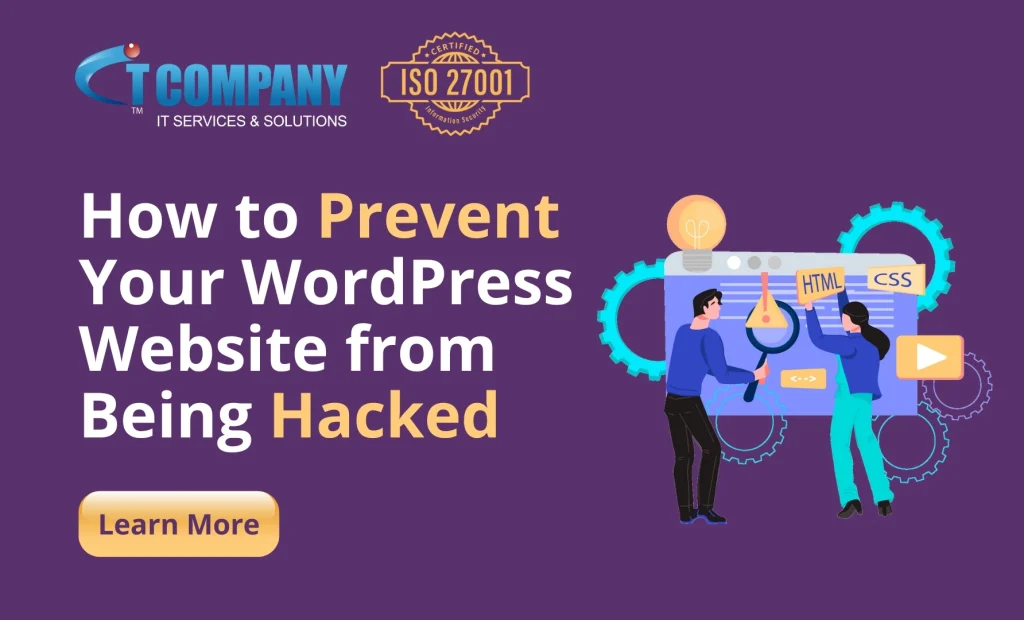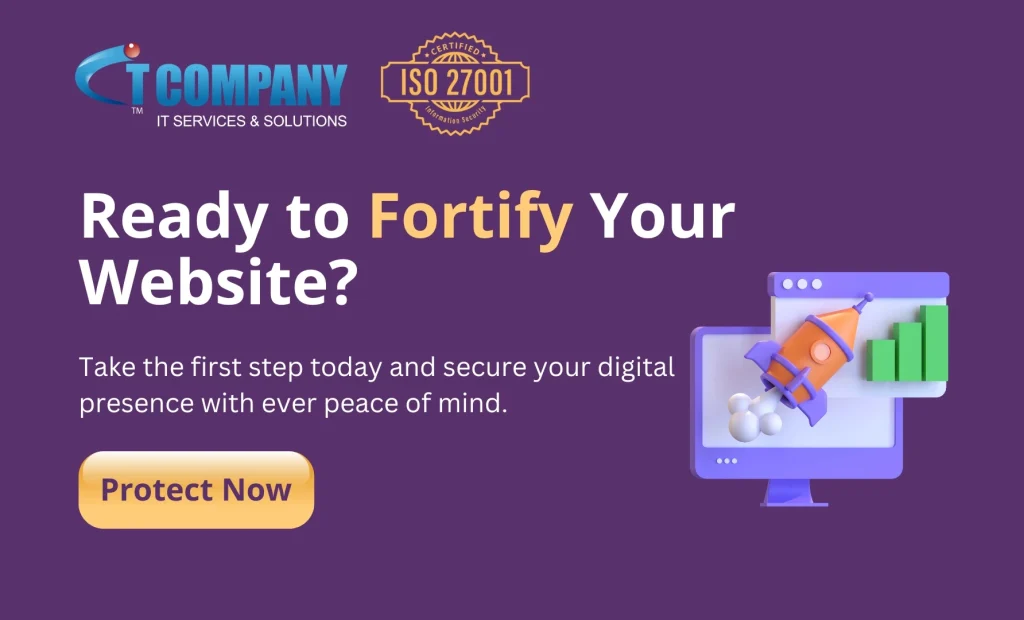
Table of Contents
ToggleSecuring your WordPress site is crucial, especially if you’ve faced vulnerabilities in the past. From cross-site scripting (XSS) to weak passwords, there are numerous threats that can compromise your website’s integrity. Here, we’ll walk through essential measures to protect your WordPress site from hacking.
1. Update Everything Regularly
Themes, Plugins, and WordPress Core
Keeping your WordPress core, themes, and plugins up to date is one of the simplest yet most effective ways to secure your site. Outdated software can have vulnerabilities that hackers exploit.
Actionable Tip: Enable automatic updates or regularly check for updates and apply them immediately.
2. Use Strong Passwords and Enable 2FA
Password Strength and Two-Factor Authentication
Weak passwords are a common entry point for hackers. Ensure all user accounts use strong, unique passwords.
Actionable Tip: Use a password manager to generate and store complex passwords.
Two-Factor Authentication (2FA): Implementing Two-Factor authentication adds an extra layer of security, requiring users to verify their identity through a second method.
Measures for Generating Strong Passwords
Creating a strong password is crucial for safeguarding your WordPress website. Here are some effective measures to ensure your passwords are robust:
Use a Minimum Length:
Aim for passwords that are at least 12-16 characters long. Longer passwords are generally more secure.
Incorporate a Mix of Characters:
Use a combination of uppercase and lowercase letters, numbers, and special symbols (e.g.,!, @, #, $) to increase complexity.
Avoid Obvious Choices:
Steer clear of common words, phrases, or easily guessable information such as birthdays or names.
Use Passphrases:
Consider creating a passphrase made up of random words, which can be easier to remember but still hard to crack (e.g., “BlueElephant! Dances@4”).
Change Passwords Regularly:
Set a schedule to update your passwords every three to six months, which helps reduce the risk of long-term exposure if a password is compromised.
Utilize a Password Manager:
Password managers can help generate and store complex passwords securely, minimizing the burden of remembering each one.
Limit Password Sharing:
Avoid sharing passwords unnecessarily. If you must share, use secure methods and change the password after the need has passed.
4. Secure Your Hosting Environment
Importance of Quality Hosting
Poor hosting services can make your site more vulnerable. Choose a reputable hosting provider that offers robust security features.
Actionable Tip: Look for hosts that provide SSL certificates, daily backups, and advanced security measures. And if it is ISO 27001 certified that is a bonus point for any website.
5. Implement a Web Application Firewall (WAF)
Firewall for Enhanced Protection
A WAF monitors and filters incoming traffic, blocking malicious requests before they reach your site.
Actionable Tip: Services like Cloudflare offer WAFs that are easy to integrate with WordPress.
6. Regular Backups
Backup Strategies
Regular backups ensure that you can quickly restore your site in case of a security breach.
Actionable Tip: Use managed Azure cloud and managed AWS Cloud for up to date backing services.
Importance of Regular Backups for Hacking Prevention
Regular backups not only ensure data recovery but also serve as a proactive measure against hacking attempts. Below is a table highlighting the benefits of regular backups and statistics showcasing their importance in cybersecurity:
| Backup Benefit | Description | Statistic |
| Data Recovery | In the event of a hack, having recent backups can restore your website to its last secure state, minimizing downtime. | 60% of small businesses that lose data typically shut down within 6 months. |
| Immediate Restoration | Quick backup solutions allow for rapid restoration, reducing the impact of security breaches on business operations. | Companies with backup solutions can recover website data within minutes, against hours without. |
| Protection Against Ransomware | Regular backups can mitigate the impact of ransomware attacks by ensuring you don’t have to pay to regain access to your data. | 30% of ransomware attack victims pay the ransom, according to cybersecurity studies. |
| Historical Versions | Backups provide the ability to restore older versions of files, which can be critical if a security flaw is discovered in a software update. | 40% of organizations report finding vulnerabilities in updates that lead to security flaws. |
| Peace of Mind | Maintaining a consistent backup routine enhances confidence in your site’s security, knowing you’ll always have a way to recover. | 78% of IT professionals believe routine backups are critical to overall security. |
By emphasizing the importance of regular backups, website owners can significantly bolster their security strategies against hacking threats.
7. Disable File Editing
Minimizing Risk
By default, WordPress allows administrators to edit PHP files directly from the dashboard. Disabling this feature reduces the risk of malicious code injections.
Actionable Tip: Add `define (‘DISALLOW_FILE_EDIT’, true);` to your `wp-config.php` file.
8. Secure Your wp-config.php File
Protecting Core Configuration
The `wp-config.php` file contains crucial configuration details for your WordPress installation.
Actionable Tip: Move this file to a higher directory level and ensure its permissions are set to 600.
9. Protect Against Cross-Site Scripting (XSS)
Mitigating XSS Attacks
XSS attacks can inject malicious scripts into your site, compromising user data and site functionality.
Actionable Tip: Use security plugins to scan for XSS vulnerabilities and sanitize all user inputs.
10. Implement Protection Against Phishing
Understanding Phishing Threats
Phishing attacks employ deceptive tactics to trick users into providing sensitive information, such as login credentials or financial details. To safeguard your WordPress website and its users from these threats, consider the following strategies:
User Education:
Regularly educate your users about the dangers of phishing, including how to recognize suspicious emails or links. Create awareness around the importance of verifying the sender’s identity before sharing any personal information.
Email Authentication Protocols:
Implement protocols like SPF, DKIM, and DMARC to authenticate your emails. These measures help prevent attackers from sending spoofed emails that appear to be from your domain.
Anti-Phishing Tools:
Utilize security plugins that offer anti-phishing capabilities, which can detect and block phishing attempts across your site, safeguarding both the website and its visitors.
Regular Monitoring:
Conduct routine checks for unusual activity or unauthorized access attempts. Employ log monitoring plugins to keep track of all logins attempts and alert you to any potentially suspicious behavior.
Conclusion:
Securing your WordPress website requires a proactive approach. Start by updating all components, enforcing strong password policies, and employing security plugins. A reliable hosting service, regular backups, and a web application firewall are essential. For those who have faced vulnerabilities before, following these steps will significantly reduce the risk of future breaches.

FAQs
What protects websites from hackers?
How do I make my website secure?
What are 5 ways you can avoid being hacked?
Keep software up to date.
Implement a web application firewall.
Regularly back up your site.
Educate users about security practices.